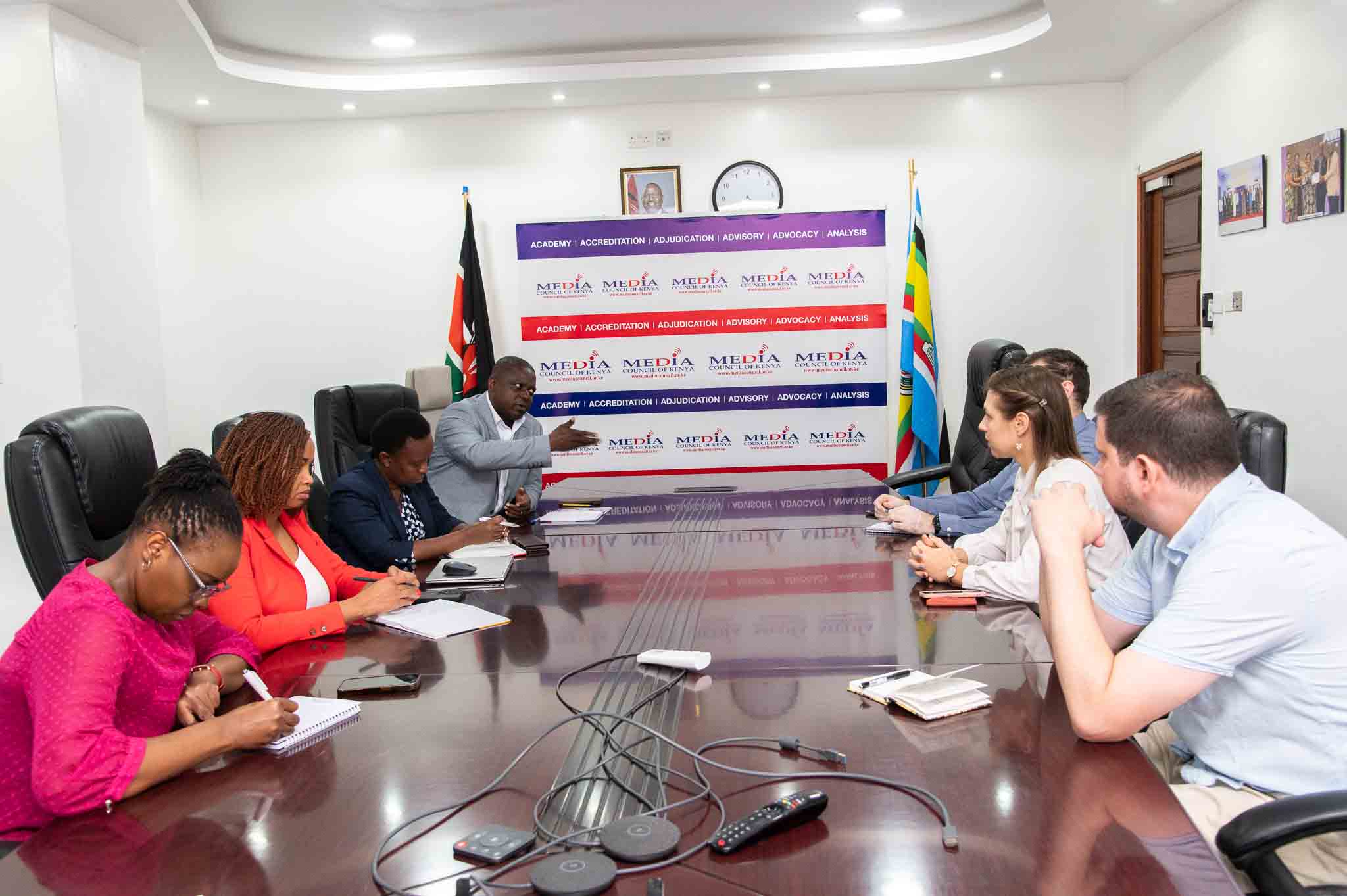
The Media Council of Kenya (MCK) has underscored its regulatory role in fostering professionalism and adherence to established standards among media enterprises and practitioners in Kenya.
MCK Director for Media Training and Development Victor Bwire outlined the Council’s mandate, emphasising its legal foundation and independence from government influence.
“The MCK is a public institution established under Article 35 of the Kenyan Constitution. Although funded by the exchequer, we remain independent from external influence,” he stated during a meeting with a delegation from the Russian Embassy and media.
Bwire noted that, in addition to its regional offices, the MCK operates media hubs to support journalists and digital content creators, akin to press clubs.
“These hubs provide free workspaces for freelance journalists and content producers, equipped with studios, internet access, and essential tools. We’ve also trained journalists on monetising content, sustainability, and accessing grants,” he explained.
He highlighted accreditation as a core function of the Council, requiring all journalists in Kenya to be accredited to practise effectively. “We issue press cards to foreign journalists based on their duration of stay, upon verification of their credentials,” Bwire said, adding that accreditation provides benefits such as access to information, enhanced safety, and airport waivers for equipment.
Bwire announced that the MCK recently launched a revised Code of Conduct for Media Practice at the Annual Media Summit and plans to introduce guidelines on Artificial Intelligence, Data Protection and Social Media use.
To fulfil its mandate, the MCK collaborates with various embassies on thematic issues. Bwire affirmed the Council’s commitment to partnering with the Russian Embassy and media, noting the potential benefits for Kenya’s media industry.
Maria Chernukhina, Third Secretary Press Attaché at the Embassy of the Russian Federation, praised the MCK’s role as Kenya’s media regulator. “We are eager to explore collaboration with the Council on projects such as fact-checking and emerging media trends,” she said, emphasising that partnerships with embassies and donors help keep pace with modern media practices and strengthen bilateral relations.
Chernukhina announced that the Russian Embassy will host the Global Internet Information Forum, with representatives from Kenyan media space expected to attend.
“The forum will include sessions on media, technology, and Artificial Intelligence, alongside press tours for participating journalists,” she added, noting that these exchange programmes will enable Kenyan journalists to learn from their Russian counterparts.
Discussions also covered establishing direct communication channels between the embassy and the MCK for efficient information sharing, exploring engagement with Russia’s Ministry of Communication to study media regulation and compliance, and following up on media training programmes offered by Russian media houses.